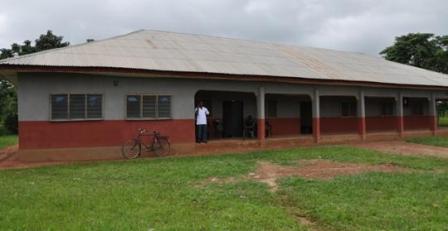Only 20% of Nigerian PHCs functional, health facility survey reveals

ABUJA – The Minister of Health, Prof. Isaac Adewole, revealed Tuesday that only 20 percent of health facilities in the country were functional.
The minister made the revelation at the dissemination of the 2016 National Health Facility Survey.
The report is the first nationally representative health facility survey designed to assess primary, secondary and private health care facilities in the country. The survey provides information on clinical competence; availability of drugs and basic equipment; readiness to provide key save-one-million-lives programme for results interventions; supervision and financial management based on the ward minimum health care package for quality service.
Availability of annual NHFS reports form the basis for Federal Government to provide performance disbursement to states, based on the quality of services provided at the primary health care level.
The survey is premised on the combination of service delivery indicators, SDI, and Service Availability and Readiness Assessment, SARA, methodologies with quality assurance support from the World Bank. The report findings are disaggregated into geopolitical zones, states and health facilities types.
Speaking at the launch of the report, which had virtually all Commissioners of Health in the country and representatives of most local and international institutions working on health in the country in attendance, Adewole said there were over 30,000 primary health care centres in the country, out of which the Federal Government planned to revitalize 10,000.
He explained that Federal Government does not own any of the facilities, but the states, and that Federal Government would continue to work to ensure that all PHCs in the country are functional.
Adewole said the report would provide government an insight into the current realities of health facilities in the country.
“Truly, there is no basis to, in a realistic way, access the status of health system in Nigeria. What people refer to has been the 2001 World Health Organization of the health system. Also, that is not valid because that was criticized by all. Since 2001, WHO has not done any ranking. But, that should not stop us from performing self-analysis.
“What is also important is that this exercise focuses essentially on primary health care, and to some extent, secondary health care facilities. It has not done anything about our tertiary,” he said.
He urged states, like Borno State and Osun, which are among the least performing states in health care delivery not to “jump into the lagoon,” but see hope that things shall get better in the future.
He added that the country should see the report as a great catalyst and opportunity of change, which he said was in tandem with the philosophy of the Federal Government.
He said the report was expected to strengthen the nation’s health system and qualitatively improve health outcomes in the country in a way that people would have confidence in the nation’s health system.
“The way to turn things around is to improve on the services that we offer our people. We should stop behaving as if we are the lord; because without the people, there would be no health system. We now have clear evidence to inform follow-up action. And, our resources can now be backed by this robust data,” he said.
He listed what the nation’s health system need to include clinical competence and the knowledge of health care workers; availability of commodities; availability of basic equipment; and management and supervision.
He also urged that government must look at the quality of training and ensure continuous professional training for health workers, including regular payment of workers’ salaries.
Meanwhile, the minister called for decentralization of fund allocations for the health sector by states, and that ward development committees be empowered to work with individuals and corporate bodies that could assist build and manage health facilities.
“Let the money get to the facility. That is where it is needed. We should also empower ward development committee to be functional, and states should begin to adopt performance-based financing in their facilities.
“I have a model PHC which we can replicate in our modern cities. It is at Ward 3 of Ibadan-North Local Government. The facility was donated by a businessman, owner of Kola Daisi Foundation. The facility is jointly managed by community health department, College of Medicine, UCH, the Ward Development Committee, and representative of the foundation.
“Kola Daisi gives N200,000 every quarter to this facility. In five years, they have registered 18,500 persons. And, much more, as at the last time I visited, the facility had N20 million in its account. In other word, a properly-managed PHC facility in an urban centre can survive on its own.
“For the rural area where they can’t break even, we will provide resources. And, I believe many of our urban cities can have self-sustaining basic facilities. The third one is availability of equipment. I believe all states must commence revitalization of health care programme,” he stated.

